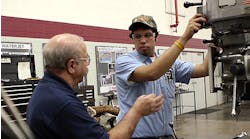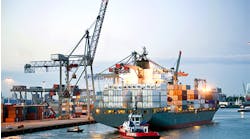Someday, this recession will be over. According to several reports citing experts in government and finance, researchers and investors, too, it’s over already. Mostly, they’re relying on the National Bureau of Economic Research metric for tracking economic growth. Technically, they may be right, but that technical standard proved hard to understand or defend about 18 months ago, when inflation was climbing and industrial output was falling, and the facts didn’t yet “prove” a recession according to the two-straight-quarters-of-economic-decline rule.
We should track these stats (NBER measures real GDP, real income, employment, industrial production, and wholesale retail sales), and we should stick to facts. But as we’ve learned in the past 12 months, it takes more than facts to create a financial crisis. There has to be a good dose of anxiety, too.
Some manufacturers are already concluding the recession is over. Georg Fischer Ltd., for example, is encouraging its stakeholders with news that “the worst” is behind them, or will be so soon. But, while “recession” may no longer define conditions in a particular financial study, it may describe the conditions in your business or industry, or especially in your mind.
The recession is less about the data we use to define it than it is about the attitudes and behavior of the people enduring it. It will continue as long as most of us are worrying about the past, rather than planning for the future. In some sense, the recession is all in our heads.
We might begin to clear our heads by thinking less about all that’s been lost since last year, less about all the changes we’ve been forced to accept, and more about the possibilities available to us.
Dwelling on the past is not the only way we hold ourselves back. We also need to free our minds about the way we approach current problems.
To be specific economic policies that occupy our debates are characterized “restraint,” not growth. We soberly discuss proposals and regulations that would limit options for industrial production, increase energy and manufacturing costs, and reduce consumers’ choices.
This is a philosophical problem as much as a practical one. If the objective is to correct past mistakes, new policies may be in order. But, if the objective is economic growth we need to make every option available. A choice between these two objectives should be made, now.
Another inhibitor to economic progress is that we’ve invested so much confidence in the notion that policies guiding our economic progress should have a national focus. First, this takes too much authority over investments and production plans from the individuals and groups most committed to their success.
Second, the “national” focus discourages the ongoing work of elevating domestic companies into global players. Ask yourself this: are the manufacturers that will be successful five years from now likely to be operating according to national standards? Or will they be following global standards?
Rather than engaging national industrial policies we should be encouraging local problem-solving and global competitiveness. We’ll have a hard time recovering from the past if we spend our energies and resources preserving present conditions.
In all of this, metalcasters might do well to study the examples of their own suppliers. Virtually every supplier of equipment and consumable products to the metalcasting industry is a global organization, or an affiliate of one. They don’t confine themselves to doing business regionally. They don’t define themselves as national organizations. They are global competitors.
Each year we devote the August issue of FM&T to presenting profiles of the members of the Casting Industry Suppliers Assn. As I’ve written before, these companies are as integral to the success and progress of metalcasting as any foundry or diecaster. We’re pleased when they choose our pages to reach their customers, and we hope our readers will take advantage of the information presented here to enhance their own prospects.









